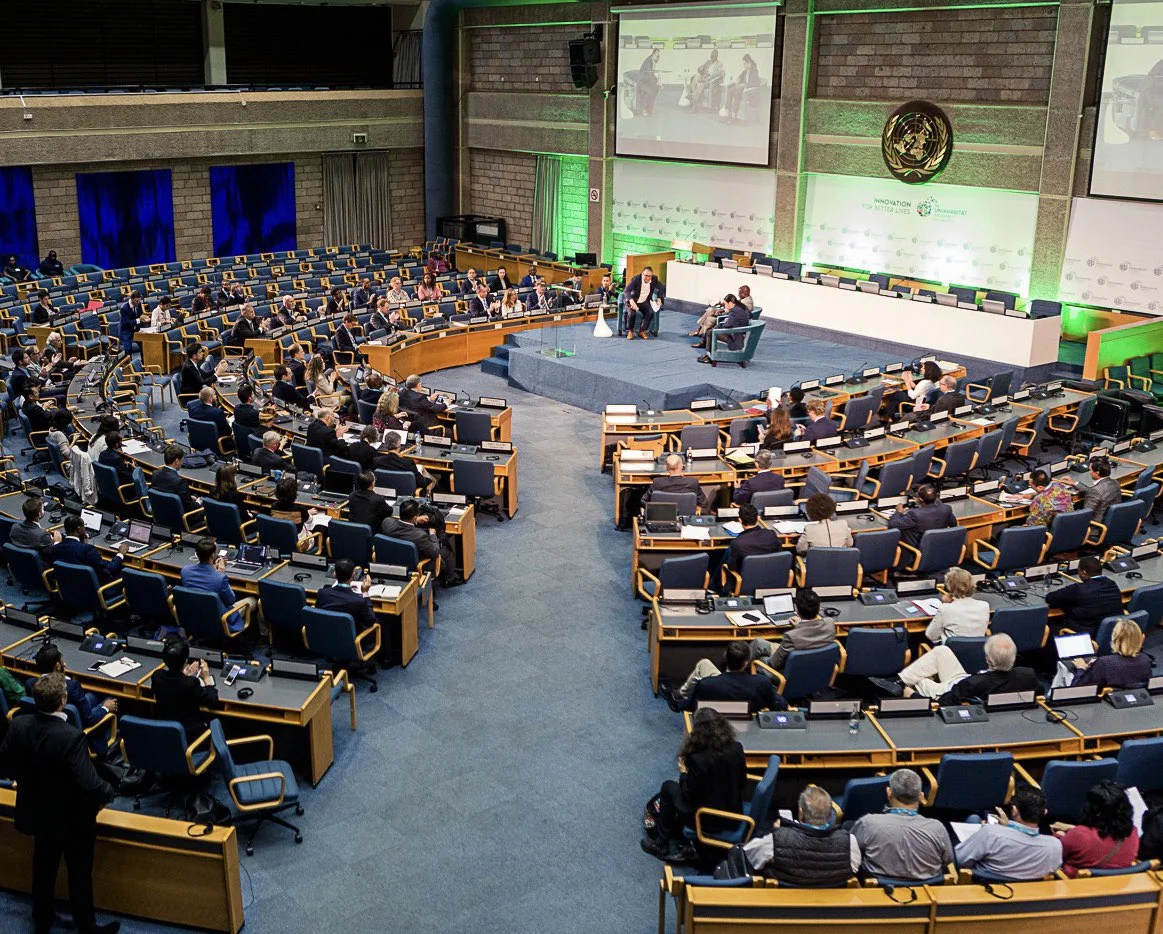“Implementing the UN System-wide Strategy on Sustainable Urban Development”
Introduction and Background
At its June 2018 session, the UN Senior Management Group recognized urbanization as a “mega trend,” and called upon UN-Habitat to facilitate cooperation among agencies to advance coherence for sustainable urbanization across the UN system. This followed the resolutions of the General Assembly on the New Urban
Agenda (Res/71/256) outlining transformative commitments for sustainable urbanization, and on Repositioning the United Nations development system (Res/72/270) to ensure greater coherence across the UN system to support Member States achieve the SDGs. In October 2018, the High-Level Committee on Programmes (HLCP) of the Chief Executive Board (CEB) requested UN-Habitat to lead a time-bound urban task force to develop a system-wide strategy for sustainable development. In April 2019, HLCP endorsed the strategy, and in May 2019, the CEB adopted it.
The strategy provides a framework for the UN system to coordinate efforts to assist Member States harness the opportunities and meet the challenges of urbanization for the attainment of the SDGs. It builds upon earlier analytical work by HLCP, aligning it with Agenda 2030 and other global agreements and considers frontier issues, such as artificial intelligence and climate change, that will impact on sustainable urbanization.
The strategy highlights the outcomes that can be achieved with greater coherence across the UN system, namely equality and poverty eradication, prosperity and economic development, climate action and environmental protection, and urban crisis response and prevention.
Also emphasized are the means of implementation afforded by the key drivers of sustainable urbanization as endorsed by Member States in the New Urban Agenda. These are urban policies at all levels, vertically integrated urban governance mechanisms, urban and territorial planning and design, and effective municipal financing frameworks.
The strategy suggests how the UN can assist Member States by coordinating efforts to advance urban data, policy, partnerships, and local financing, working through existing UN structures and reform processes. A concluding section offers ways UN-Habitat can facilitate the implementation of the system-wide strategy and the promotion of sustainable urbanization.
2. Objectives
The first session of the United Nations Habitat Assembly, with its thematic focus on “Innovation for Better Quality of Life in Cities and Communities,” and sub-theme “Accelerated Implementation of the New Urban Agenda for Achievement of the Sustainable Development Goals,” offers an opportunity for the UN system and Member States to begin to implement the UN system-wide strategy on sustainable urban development.
The Dialogue will enable agencies and Member States to discuss how to utilize the United Nations Sustainable Development Group to advance the data, policy, partnership, and finance aspects of the strategy -- globally, at regional level, and at country level as part of the new Resident Coordinator System.
The Dialogue will also provide opportunities to discuss how to utilize the strategy to guide the development of inter-agency cooperation agreements and joint programming that meet the needs of Member States and various local and non-State actors.
3. Expected Outcomes
(i) Common understanding about the UN system-wide strategy on sustainable urban development, including opportunities for collaboration;
(ii) Commitments by UN agencies and UN Resident Coordinators to support joint global programming on urban data, integrated policy support, partnerships and local financing;
(iii) Identification by UN agencies, UN Resident Coordinators, and Member States of countries that plan to make urban development a top priority;
(iv) Recommendations by Member States to enhance the implementation of the UN system-wide strategy for sustainable urban development.

